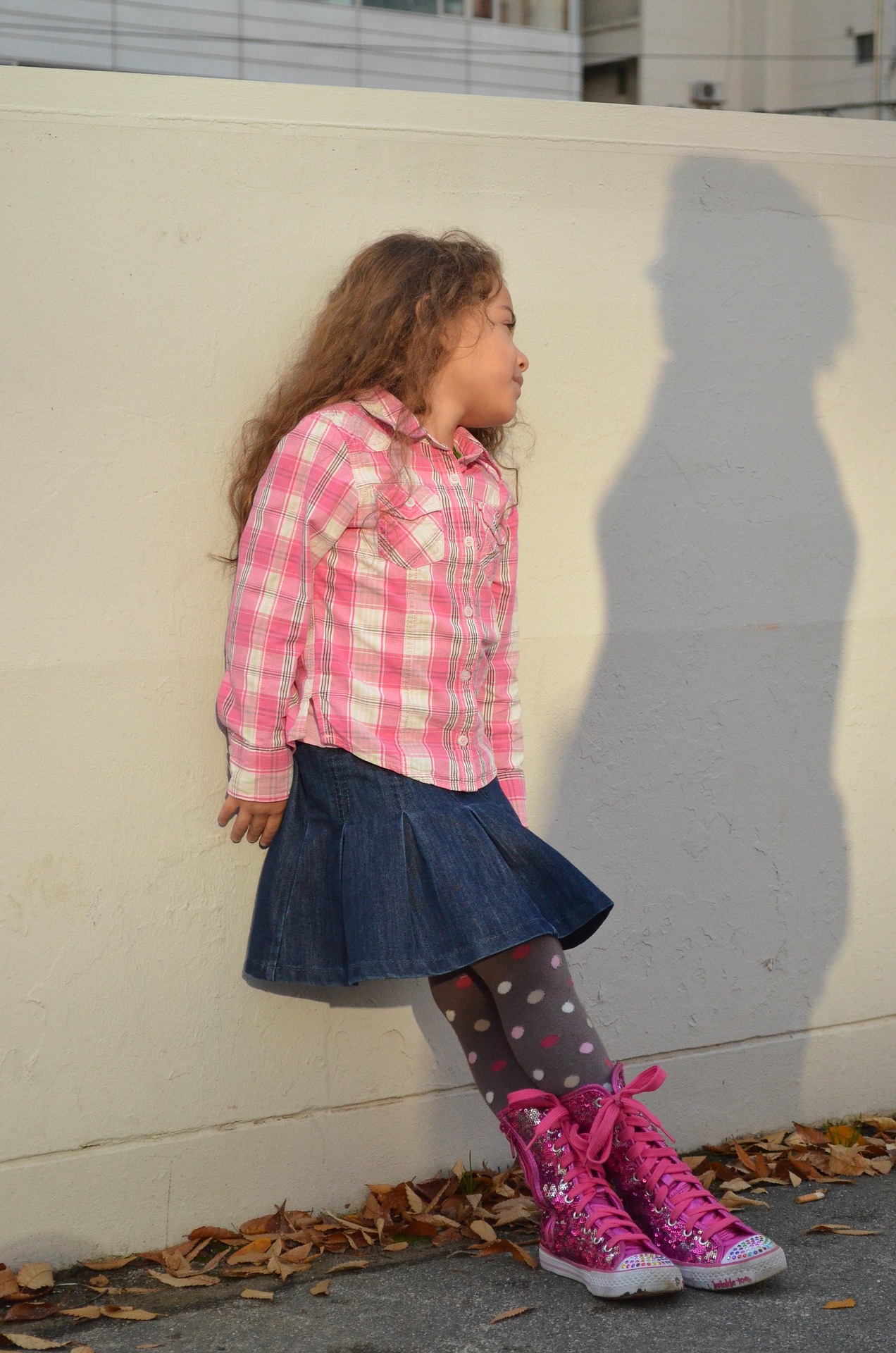
There’s so much talk about addiction and the struggle that can ensue for those mired in addiction, but little time is spent focused on the children who have no say so in the matter.
The addict or alcoholic who struggles to live a sober life understands better than anyone the lies that we tell ourselves to justify the unjustifiable. Ask any sober mom about her biggest regrets, and most often she’ll list things that had to do with her children. It seems to me that if women out there are so sure they don’t have drinking problems, they may want to heed what other mothers have experienced: You don’t have to own the guilt of drinking if you choose not to drink. However, to think behaviors will change based on what’s happened to others is magical thinking, especially when our current culture tends to glorify alcohol at every turn.
Children of the proverbial wine-mom see the two faces of the woman they call mom. There’s the public face—the sociable woman—the person she wants the world to see—a woman who has it all together and has it all under control. In reality, she does too much; she’s stressed to the max, but because she has an image to maintain…it takes what it takes…, gulp, gulp. Then, there’s the other side of mom’s life, the one that’s hidden from view, but her kids see it: this is the woman that quietly numbs herself in the kitchen because inside, she’s falling apart. She’s the woman who can’t deal with life, never feels good enough, never thinks she does enough, is socially insecure, can’t parent from a place of strength, and may be selfish and self-centered to the nth degree. The woman who lacks the emotional maturity to navigate life, let alone guide her childern—yet this is the gal who will lash out like crazy if you even hint to her that all that drinking isn’t healthy and maybe the drinking has something to do with why her kids are also anxious and confused.
What about the Children?
On the back side of the party-moms are kids who live in quiet desperation—these children—products of alcohol-fueled homes are falling apart as well. These kids were never taught healthy coping skills: Life, school, friends, and finding self-acceptance in their own lives is difficult to do, and without mature guidance, these kids often turn toward alcohol or drugs to self-medicate because what else do they know? What else do they see?

I understand what it’s like to grow up with a boozy parent because my mother was an alcoholic. I understand the fear and anxiety that plagues children of parents who drink to excess—and it’s a subject that gets little devotion compared to the attention that the person in addiction receives.
I devoted a chapter to kids in Raising the Bottom because I wanted to give kids a voice since it seems that our self-centered society is all about wine for mom and to hell with what the kids think. As I ask in the chapter titled, “What Your Kids Say About You and Your Drinking”: Why do we glamorize drinking and question the teetotalers like they’re doing something wrong? As a society, we need a cataclysmic shift in the way we think about alcohol.
There are too many women whose focus is to get through the workday so they can go home and have a drink. Or they grit their teeth to get through the week so they can drink with their friends over the weekend. Some justify their drinking by telling themselves they only drink while cooking. Others may stop for a cocktail on their way home from work, and then that one drink turns into three or four.
What Alcoholism Can Look Like
Caro, a surgeon, whose story is included in Raising the Bottom was the sort of mom who came home from work, poured herself a glass of wine and continued to drink throughout the evening. She didn’t think she was hurting anyone. Her kids lived in a beautiful home, they had all the necessities plus a whole lot more. Never mind the failed marriages or the emotional unavailability that she exhibited toward her children. They were fine, or so she thought until she quit drinking. It’s then that her daughter Lucy, sixteen years old at the time, opened up to her mother about how she felt. I included Lucy’s poignant letter in Raising the Bottom so people could understand how the child feels:
I know alcoholism happens so slowly that people don’t realize where they’re headed, and then boom…they’re in it with no way out. The denial is so great. My mother would stagger all over the kitchen and still deny she had been drinking.
Her drinking made me feel second-best. Alcohol always came first. I was a kid. How am I supposed to understand she has a disease? All I could see is that she couldn’t go a day without drinking, and she couldn’t not drink—for me. She couldn’t stop for me—so then I felt worthless. How can people think or say that drinking doesn’t affect the whole family?
I could see how alcohol affected her. It made her irritable. She would say stupid things to me and my brother. We didn’t think any of them were funny. She wasn’t enjoyable to be around because she wasn’t the same mom. The further she slipped into her addiction, the less and less I wanted to do with her. I even got to the point where I saw her as an example of what I didn’t want to be as a mother and a wife.
Lucy, devastated by her mother’s drinking, internalized much of her mother’s behavior and thought it somehow reflected back on her. It was only after her mother got sober that they were able to repair their relationship. Women have to be willing to look past their denial and listen to what their children have to say. Children are helpless. Their fate is whatever environment they are given, and they will either thrive or die.

Lucy’s feelings are what happens on the other side of the glass. Why do children and teens get so little attention in our ubiquitous wine culture? All those wine memes that encourage drinking is one of the most selfish pastimes we can partake in, and it does nothing to nurture or guide the next generation.
The following are some comments from the moms who think drinking is a must, and I have to ask: Are these the sorts of messages we want to impart to our young people?
“Dear Santa, Wine, that is all!”
“If I did one of those wine & paint nights the instructor would be like, wow, you’re really good at wine!”
“The most expensive part about having kids is all the wine you have to drink.”
“Currently approving my kids friends based on which parents I think will drink wine with me on playdates!”
I wish I could say I was surprised by the above comments, but this is how shallow some women in our society have become. There’s no real concern for the children because it’s all about the moms, and sadly, this is all too true for a whole lot of women and their friend groups. What’s even sadder is that if you’re not the sort of mom who buys into this nonsense—well, you run the risk of being ostracized.
Now, That’s Rock Bottom.
All this division between wine-moms and moms who choose not to drink or cosign on the wine-time culture is like a script for a mean-mom movie instead of mean-girls’ movie. As a culture—this is where we are…and what does it say about our society as a whole when women care more about their fun and their drinking than they care about how their behavior will impact their children? As I pointed out—that’s rock bottom.
Shouldn’t Women Care More about Gaining the Respect of Their Children Rather than Seek the Approval of Their Peers?
Instead of a culture that finds the aforementioned sentiments funny, we need more people to stand up, raise their hand and say, it’s desperate and sad, and when is enough is enough? The push for wine is nearing pathological heights, and even though most women laugh and brush off all the comments, defending them as lighthearted and fun, especially the one about mothers who need to approve their kid’s friends based on which moms drink, but I don’t think they’re kidding and neither do they.
Drink up! Wine’s fun. I gotta have it! More for me! Yippee!! To hell with what the kids see! It’s all about me!
The reality of all the wine memes and comments on social media is that this is what women do when they like to drink and want others to tell them it’s okay. Back in my drinking days, I only wanted to drink with people who drank like me. I failed to grow up, emotionally. I liked women who needed alcohol to survive the day. I wanted to be around others who approved of my party lifestyle, that way, I could justify what I was doing (drinking abnormally) and convinced myself that it was normal. Drinkers have a way of finding other drinkers who will cosign on their need to escape reality with a chemical that will ultimately, make life infinitely harder, sadder, and unhealthier for all. Why have we normalized alcoholism? Why does our culture celebrate excessive drinking with such panache?
If women could back off of the drinking while they still had a choice…
If more women heard how their kids felt about their drinking would they reconsider? Does anyone really want to be the mom who has kids that say things like this:
“My mom gets her hair done and goes to the gym. That’s all.”
“My mom looks stupid when she’s drunk.”
“Mommy drank wine, and then she fell.”
“She buys wine every day and drinks all night.”
I wonder why more moms don’t consider a healthier lifestyle why they can still make the choice…or maybe they only want to believe they can still choose? When you listen to women talk about their deep regrets and how they couldn’t be the mom they wanted to be when they were drinking, it’s heartbreaking. Why don’t more women listen and learn from these voices than the voices of their party pals chirping in their ears to drink drink drink? And lastly, if the so-called wine-moms are so sure they don’t have a drinking problem, then why not cut way back so kids can see a different perspective—that a life without alcohol front and center can be done, and done well?
Spare yourself the guilt and shame of role-modeling a boozy life?
My mother felt deep shame about her drinking. Even after she had accumulated thirty good years of sobriety, on her deathbed, she asked again if any of her four children harbored any resentments. None of us did, but it makes me sad that even after years of clean living she held onto a sliver of guilt over the years that she drank. If more women knew about the endless guilt they might feel, would they rethink all those drinks?
Kids can’t learn healthy coping skills from boozy parents: I’ve talked to many kids who’ve shared with me the deep resentments they harbored toward their ‘party” parents—the young people who grew up and later realized that their parents taught them little more than how to mix an excellent martini or make a pitcher of margaritas. Many young adults have shared with me that they didn’t want a fun mom. They wanted a dependable mom who could’ve shown up for life, acted like an adult, and who could’ve taught them how to cope instead of run.
It’s madness. It must change
It was hell to watch my beautiful mother destroy herself with alcohol, and back in the day, it was not chic to do so—while sadly, today, it’s all about the booze. Mommy needs help coping, so bring out the wine!
Our children deserve better than to believe that wine-time is the solution to all of life’s glitches. Perhaps it’s time to rethink the messages that we send to our children. They deserve to hear messages and see adults who can live sane and sober lives; adults who can handle adult problems without a meltdown and without a beer or a glass of wine. Our kids need somewhere to look other than toward adults who can’t seem to get through life or a day without a cocktail in hand. If we want our children to do different, or be better—we have to do a better job of showing them options and life on the other side of a drink.
Lisa is the author of the multi-award winning book, Raising the Bottom: Mindful Choices in a Drinking Culture. After short stints where she trained polo horses, worked as a flight attendant, hairdresser, and bartender, she revamped her life and settled in as a registered nurse. For the past twenty-nine years has worked with hundreds of women to overcome alcoholism, live better lives and become better parents. She was prompted to write Raising the Bottom when she realized after twenty plus years of working in hospitals, that doctors and traditional healthcare offer few solutions to women with addiction issues. You can start reading for free on Amazon. Follow her on Twitter @LBoucherAuthor and Instagram
